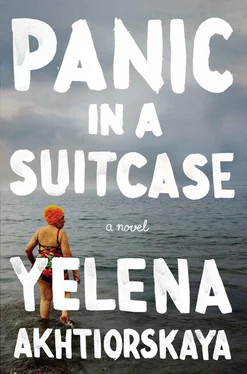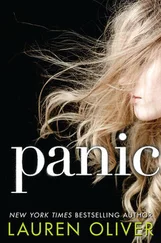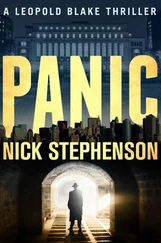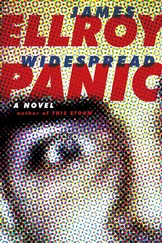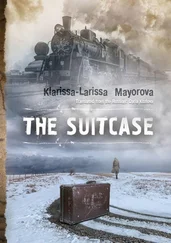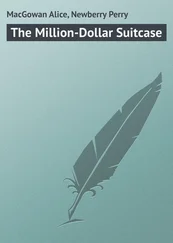The water level in the boat was rising, and Pasha ingeniously thought to put his new baseball cap (Levik’s old baseball cap) to use. The damp cap would then be refreshing on his scalp. As he ladled capfuls and flung with gusto, his oar came loose, plopped into the water, and sank to the bottom. It happened so fast it might not have happened at all. Pasha squatted to peer into the lake, but the boat’s sway forced him back into his seat.
A glance of uncertainty passed between father and son. Flanked by dense rows of huddled, inscrutable trees, the lake was congealed sky, the sky an emptied lake. Absorbent and reflective properties made it a challenge to panic properly. They were nowhere, nobody around to incite distress. And they wouldn’t incite each other’s. In predicaments Robert and Pasha served the same extinguishing function. They were the turgid logs that killed the flame, and if they happened to ignite, it turned into one massive blaze — a purely speculative metaphor, as in their many encounters with disaster they’d managed to steer clear of that one element, having never tempted fate with grills or space heaters.
So I guess, began Robert, but he aborted. A moment later he tried again. What probably happened, he said, but decided not to. Hmm, he said, hmm. See this metal ring that’s holding my oar in place? It was probably already damaged on yours, and when you let the oar go, the weight finished off the job.
Oars aren’t supposed to sink.
Damaged! Nothing’s really free in this world!
It’s our luck that’s the problem, said Pasha.
Will we be charged? How much does an oar cost?
A million dollars. Are you about to go down there?
Robert seemed to consider it, peering into the clogged drain of the devil’s bathtub. Price doesn’t matter, he affirmed. Let’s head back.
But the second oar wasn’t decoration. Circling in one spot as if caught in a slow-motion tornado, they succeeded only in getting disoriented. You have to alternate sides, said Pasha, and grabbed his father’s oar, which also came out of its lock with ease, making Pasha feel strong and mighty. In trying to alternate sides, he flooded the boat more. Their shoulders ached. Blisters stiffened their palms. They decided to wait for a boat to pass, meanwhile drifting into a dark, narrowing nook of the lake shaded by grotesque trees that obviously had to find circuitous ways of meeting their nutritional needs. There was a smell of damp, verdurous pulp, as if at the end of the lake a giant grinder were mashing the lake, trees, shrubs, and sky.
A few minutes passed in silence before Robert recognized his fortune. What more could he want? Locked with his son in a capsule, stranded in the American wilderness with nothing to occupy Pasha’s interest, no one to divert his attention, no disciplinary interjections from Esther, no impossible-to-keep-up-with ideas from Marina, no CDs, books or art catalogs, no phones, friends, subways, no Chelsea or Guggenheim, just trees and a few clouds, which they admired, appreciated, perhaps willfully sustained around themselves, but without true investment. Trees and clouds were the natural world’s equivalent of TV, which someone always kept turned on. Robert and Pasha were at most peripherally tuned in.
This reminds me of our plane rides, said Robert.
Are you afraid of falling to your death?
I’m enjoying your company.
Pasha shoved his arm under Robert’s nose, pointing to a crescent-shaped scar on the inner wrist. That’s Yerevan.
Robert laughed. And I’ve always considered myself a nonviolent man, he said.
Arm flipped — bite marks. Tomsk.
I took you to Tomsk?
Where didn’t you take me?
Arkhangelsk?
You mean Talagi Airport? Twice.
As the city’s leading specialist in clinical neurology, Robert had been ordered by the Ministry of Health to constantly engage his phobia, which, considering Soviet aviation statistics, one would be hard-pressed to call irrational. He gave consultations and seminars in small towns, but he also paid visits to the central hubs, where innovations in the field were taking place. Best of all, he attended to emergency patients in remote villages, flying in dilapidated toy planes equipped with thoughtful holes in the floor — rides were so bumpy the doctors usually vomited. An initial romantic plan to forgo flight and ride the rails proved unreasonable; Robert only had to look at a train in order to be robbed blind. He began pulling Pasha out of class, bringing him along on the flights. Clutching his son’s hand, he could overcome the fear just long enough to enter into the vehicle of fiery torture and death. Stuck in these capsules above the marching clouds, Robert shed poisonous sweat, convulsed, clawed the armrest and the pale forearm of his son. In his university days, Pasha became more reluctant to put his life on pause, and in the fall of 1982, the phobia abandoned Robert, like a neighbor that moved out of the building — the claustrophobic atmosphere dispersed, everyone rejoiced, and a replacement neighbor moved in.
Are you homesick? asked Robert.
Pasha was stripping bark off a wet branch like string cheese. He shrugged. I don’t consider Brighton home.
I didn’t mean Brighton.
Can’t say I’ve thought about it.
Means no.
Probably. I’m a little tired of it all.
Robert hiccupped. It all?
Nothing, I shouldn’t complain.
But you did say you were tired.
Nadia.
Oh.
Having never stooped to the subject of women, they weren’t about to begin now. They had an understanding. Robert didn’t need to know about his son’s emotional or sexual entanglements. He had no advice to give. That part of Pasha’s life could be as fraught as necessary and belonged to Pasha’s future biographer, who’d surely take an avid interest in such matters, probably even amplify, adding her own artistic touches. It was preferable that Pasha maintain a high level of activity and complexity in his personal life. It would be suspicious if a poet didn’t do so. Still, Robert couldn’t help but find it distasteful. Get a wife and stick to her. Robert was starving for news of Pasha’s career, foremost his current literary projects but also about the other poets in Odessa, what they were up to, suspecting that it was delightfully mediocre yet needing the facts in order to condescend responsibly. Pasha was cautious with this information, distributing it in meager doses. At times Robert had to wonder whether withholding didn’t provide his son sadistic pleasure. But occasions when Pasha disclosed generously didn’t go smoothly. When he touched on the Odessa poets and their versified propaganda, Robert was all frothy spittle and dilated pupils. Enthusiastic agreement irritated Pasha. In response to an outpouring of convictions, he demanded thoughtful contradiction or silence. And when he detailed a current project, Robert’s follow-up questions were inevitably concerned with how the undertaking might further Pasha’s standing, because, my dear, one collection of poetry does not an established poet make.
And otherwise, said Robert. How’s the institute?
It looks like I’ll finally be getting that assistant.
You need an assistant? I never had an assistant.
It should’ve happened ages ago, said Pasha, who’d been working at the Filatov Institute of Eye Diseases for a decade, because the rule in Russia, perhaps not exclusively, was the greater the writer, the shittier the day job. The job was just one more thing for which Pasha could thank his father, who for years had treated the epileptic daughter of Amalga Svinovna Allergiskaya, head of the institute (“one of the leading ophthalmology centers of Europe”) and creator of “the first in the country Center of Treatment for Severe Eye Burns.”
Читать дальше
